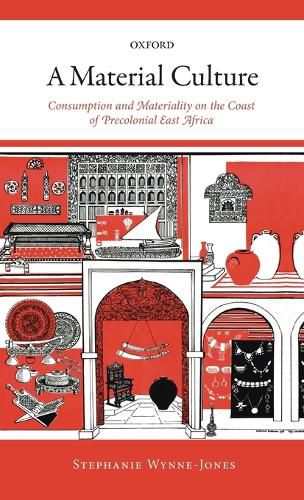Readings Newsletter
Become a Readings Member to make your shopping experience even easier.
Sign in or sign up for free!
You’re not far away from qualifying for FREE standard shipping within Australia
You’ve qualified for FREE standard shipping within Australia
The cart is loading…






A Material Culture focuses on objects in Swahili society through the elaboration of an approach that sees people and things as caught up in webs of mutual interaction. It therefore provides both a new theoretical intervention in some of the key themes in material culture studies, including the agency of objects and the ways they were linked to social identities, through the development of the notion of a biography of practice. These theoretical discussions are explored through the archaeology of the Swahili, on the Indian Ocean coast of eastern Africa. This coast was home to a series of settlements from the seventh century onwards; some grew to become coral-built ‘stonetowns’. These precolonial towns, such as Kilwa Kisiwani, Mombasa, and Gede, represent a unique urban tradition. They were deeply involved in maritime trade, carried out by a diverse Islamic population.This book suggests that the Swahili are a highly-significant case study for exploration of the relationship between objects and people in the past, as the society was constituted and defined through a particular material setting. Further, it is suggested that this relationship was subtly different than in other areas, and particularly from western models that dominate prevailing analysis. The case is made for an alternative form of materiality, perhaps common to the wider Indian Ocean world, with an emphasis on redistribution and circulation rather than on the accumulation of wealth. The reader will therefore gain familiarity with a little-known and fascinating culture, as well as appreciating the ways that non-western examples can add to our theoretical models.
$9.00 standard shipping within Australia
FREE standard shipping within Australia for orders over $100.00
Express & International shipping calculated at checkout
A Material Culture focuses on objects in Swahili society through the elaboration of an approach that sees people and things as caught up in webs of mutual interaction. It therefore provides both a new theoretical intervention in some of the key themes in material culture studies, including the agency of objects and the ways they were linked to social identities, through the development of the notion of a biography of practice. These theoretical discussions are explored through the archaeology of the Swahili, on the Indian Ocean coast of eastern Africa. This coast was home to a series of settlements from the seventh century onwards; some grew to become coral-built ‘stonetowns’. These precolonial towns, such as Kilwa Kisiwani, Mombasa, and Gede, represent a unique urban tradition. They were deeply involved in maritime trade, carried out by a diverse Islamic population.This book suggests that the Swahili are a highly-significant case study for exploration of the relationship between objects and people in the past, as the society was constituted and defined through a particular material setting. Further, it is suggested that this relationship was subtly different than in other areas, and particularly from western models that dominate prevailing analysis. The case is made for an alternative form of materiality, perhaps common to the wider Indian Ocean world, with an emphasis on redistribution and circulation rather than on the accumulation of wealth. The reader will therefore gain familiarity with a little-known and fascinating culture, as well as appreciating the ways that non-western examples can add to our theoretical models.